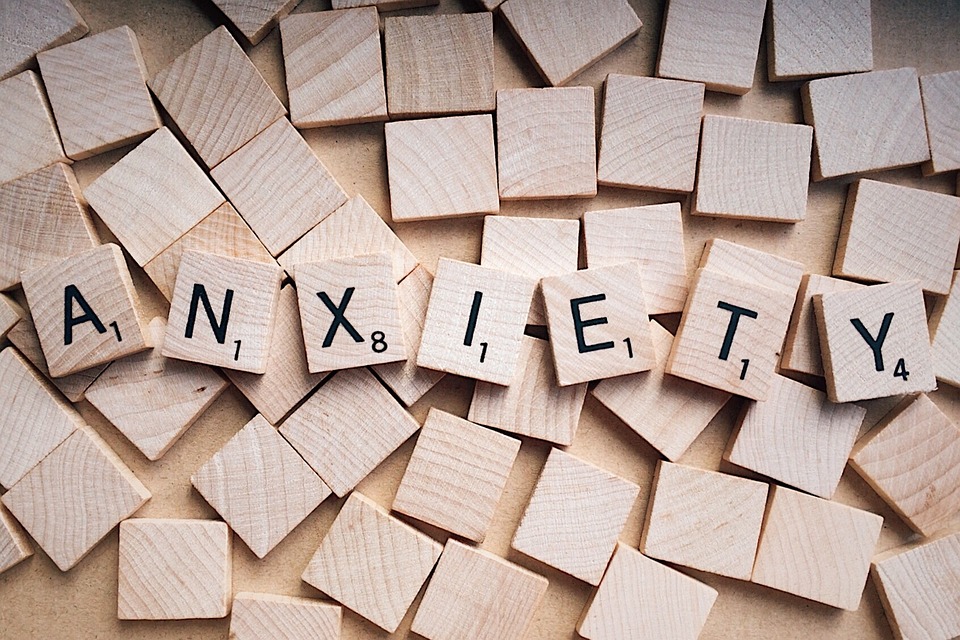
The many faces of anxiety: Does the latter affect more than just the brain? Is it just mental or the physical gets affected? Let’s tackle each spectrum.

Anxiety is a complex condition that impacts more than just the brain, with both mental and physical symptoms affecting many areas of a person’s life. If not promptly and effectively treated with medication or psychotherapy, anxiety can lead to long-term consequences. Ignoring the symptoms can result in not only mental but also physical and social issues. Let’s examine how anxiety affects different dimensions of health and well-being.
Mental and Emotional Effects
- Cognitive Impairment: Anxiety can significantly affect cognitive functions such as memory, attention, and decision-making. People with anxiety often experience racing thoughts, difficulty concentrating, and intrusive worries, which can impair their ability to function effectively in daily tasks and professional responsibilities.
- Emotional Distress: Anxiety disorders often come with heightened emotional sensitivity. Individuals may feel overwhelmed, fearful, and experience mood swings. This emotional distress can lead to irritability, frustration, and a general sense of unease, making it challenging to maintain emotional stability.
Physical Effects
- Cardiovascular System: Anxiety triggers the body’s “fight or flight” response, which can lead to increased heart rate, palpitations, and elevated blood pressure. Chronic anxiety can contribute to long-term cardiovascular issues, including heart disease and hypertension.
- Respiratory System: Anxiety can cause rapid, shallow breathing or hyperventilation, leading to respiratory problems. People with anxiety may feel short of breath, even when there is no physical exertion, exacerbating feelings of panic and discomfort.
- Digestive System: The gut-brain connection is well-documented, and anxiety can significantly impact the digestive system. Symptoms such as nausea, stomach cramps, irritable bowel syndrome (IBS), and changes in appetite are common. Chronic anxiety can disrupt normal digestive processes, leading to long-term gastrointestinal issues.
- Musculoskeletal System: Anxiety often leads to muscle tension, resulting in aches, pains, and headaches. Chronic muscle tension can contribute to conditions like tension headaches, migraines, and musculoskeletal pain, further affecting physical well-being.
- Immune System: Chronic anxiety can weaken the immune system, making individuals more susceptible to infections and illnesses. The constant state of stress associated with anxiety can reduce the body’s ability to fight off pathogens effectively.
Social and Behavioral Effects
- Social Interaction: Anxiety can severely impact social interactions and relationships. Individuals may avoid social situations due to fear of judgment or embarrassment, leading to isolation and loneliness. This social withdrawal can exacerbate feelings of anxiety and depression, creating a vicious cycle.
- Behavioral Changes: Anxiety can lead to various behavioral changes, such as increased reliance on substances like alcohol or drugs as coping mechanisms. It may also result in unhealthy habits like overeating, smoking, or excessive caffeine consumption, further affecting overall health.
- Sleep Disturbances: Anxiety often disrupts sleep patterns, leading to insomnia or poor-quality sleep. Lack of restorative sleep can worsen anxiety symptoms, reduce cognitive function, and negatively impact physical health.
Addressing Anxiety Holistically
- Mental Health Support: Seeking professional help from therapists or counselors can provide valuable strategies for managing anxiety. Cognitive-behavioral therapy (CBT), mindfulness, and other therapeutic techniques can help individuals understand and manage their anxiety better.
- Physical Health Interventions: Regular exercise, a balanced diet, and adequate sleep are crucial in managing anxiety. Physical activity releases endorphins, which can help reduce anxiety symptoms, while a nutritious diet supports overall well-being.
- Social Support: Building a strong support network of friends, family, or support groups can provide emotional support and reduce feelings of isolation. Sharing experiences and coping strategies can be beneficial in managing anxiety.
- Lifestyle Changes: Incorporating relaxation techniques such as yoga, meditation, and deep-breathing exercises can help reduce stress levels. Reducing caffeine and alcohol intake, establishing a regular sleep routine, and practicing self-care can also significantly impact anxiety management.
Anxiety is a complex condition that impacts both the mind and body. Recognizing its multifaceted effects can enable individuals to seek the right interventions and adopt strategies to manage anxiety effectively, thereby enhancing overall quality of life. Don’t let anxiety dominate your life by taking over your mind and body. Numerous treatments and mental health professionals are available to provide talk therapy and coping mechanisms. Staying silent about your mental health won’t help; not speaking out can have long-term detrimental effects on your well-being. Reach out to community members for support and ask your doctor for mental health referrals. Take steps to improve your well-being.


The challenges of Baby-boomers generation: Is post-retirement depression real? Strategies to reduce symptoms of depression and find purpose again.

The Baby Boomer generation, born between 1946 and 1964, has experienced significant cultural, economic, and social transformations. As this generation reaches retirement age, many face unique challenges that can affect their mental health and overall well-being. One of the most pressing concerns is post-retirement depression. This article explores the reality of post-retirement depression among Baby Boomers, identifies contributing factors, and offers strategies to alleviate symptoms and rediscover a sense of purpose.
Understanding Post-Retirement Depression
Retirement marks a significant life transition. While often seen as a period of relaxation and freedom from work-related stress, it can also trigger feelings of loss, emptiness, and uncertainty. The sudden shift from a structured work routine to unstructured time can be disorienting, leading to depression. The absence of a daily work schedule can create a void, making retirees feel aimless and restless. Many retirees struggle with the loss of professional identity, which can result in a profound sense of purposelessness. This loss of identity is often accompanied by social isolation, as the workplace also serves as a primary source of social interaction. The lack of regular engagement with colleagues can lead to loneliness and further exacerbate feelings of depression. Additionally, the challenge of filling newfound free time with meaningful activities can be overwhelming. Without clear goals or responsibilities, retirees may feel disconnected from a sense of achievement and productivity. Consequently, the initial excitement of retirement can quickly turn into anxiety and depression.
Prevalence Among Baby Boomers
Research indicates that post-retirement depression is a genuine concern. According to the American Psychological Association, approximately 10-25% of retirees experience significant depressive symptoms. Baby Boomers, in particular, may be vulnerable due to their strong work identities and the societal emphasis on productivity during their formative years. Having been raised in a culture that values hard work and career success, Baby Boomers often tie their self-worth and identity to their professional achievements. Upon retiring, the loss of this identity can lead to a profound sense of purposelessness and inadequacy. The sudden lack of daily structure and professional engagement exacerbates these feelings, contributing to a higher risk of depression. Additionally, Baby Boomers may struggle with adjusting to a slower pace of life, finding it challenging to fill their days meaningfully. Social isolation can further compound these issues, as the workplace often provides a critical social network. The transition to retirement, therefore, poses significant mental health challenges for many in this generation.
Factors Contributing to Post-Retirement Depression
Loss of Work Identity
For many Baby Boomers, their careers were integral to their self-identity. The transition to retirement can lead to a loss of purpose and self-worth, as they no longer have the professional roles that once defined them. Without the daily structure and goals provided by work, retirees can feel aimless and disconnected. This loss of identity can be particularly challenging for those who have spent decades building their careers. The absence of professional responsibilities often results in a profound sense of purposelessness. Additionally, the lack of social interaction from colleagues can lead to feelings of isolation and loneliness. Consequently, the transition from a busy work life to retirement can trigger significant emotional and psychological challenges.
Social Isolation
Work provides not only a sense of purpose but also essential social interaction. Retirement often leads to a reduction in social contacts, which can result in loneliness and isolation. This decreased social engagement removes a key support system, intensifying feelings of disconnection. The resulting isolation can significantly exacerbate feelings of depression. Without the daily interactions and camaraderie that work offers, retirees may struggle to find new sources of social fulfillment. This lack of connection can make the emotional transition to retirement even more challenging.
Financial Concerns
Despite having retirement savings, financial concerns remain a significant stressor for many Baby Boomers. The fear of outliving their savings, facing unexpected medical expenses, or lacking financial security can lead to substantial anxiety. These financial worries can exacerbate feelings of vulnerability and uncertainty. The stress from potential financial instability often contributes to depression. Even well-planned finances can feel insufficient in the face of rising living costs and health care needs. Consequently, financial insecurity can overshadow the anticipated peace of retirement, adding to emotional strain.
Health Issues
Aging often brings various health challenges, including chronic illnesses, reduced mobility, and cognitive decline. These health issues can significantly impact one’s quality of life and mental health. The physical limitations that come with aging can lead to feelings of helplessness and frustration. Struggling with everyday activities can diminish a sense of independence, contributing to a loss of self-worth. This decline in physical capability can also exacerbate feelings of isolation and depression. Consequently, the health challenges of aging pose significant emotional and psychological hurdles.
Strategies to Reduce Symptoms of Depression
1. Maintain a Structured Routine
Establish Daily Goals
Creating a structured daily routine can provide a sense of purpose and normalcy. Setting achievable goals, whether they are related to hobbies, exercise, or volunteer work, can help retirees stay engaged and motivated.
2. Stay Physically Active
Exercise Regularly
Physical activity has been shown to improve mood and overall well-being. Engaging in regular exercise, such as walking, swimming, or yoga, can boost endorphin levels and reduce symptoms of depression.
3. Foster Social Connections
Join Social Groups
Maintaining social connections is crucial for mental health. Joining clubs, participating in community events, or reconnecting with old friends can provide a sense of belonging and reduce feelings of loneliness.
4. Pursue Hobbies and Interests
Engage in Enjoyable Activities
Retirement offers the opportunity to pursue hobbies and interests that may have been neglected during working years. Engaging in activities that bring joy and fulfillment can provide a sense of purpose and satisfaction.
5. Seek Professional Help
Consult a Therapist
If depressive symptoms persist, seeking professional help is essential. Therapists can provide coping strategies, cognitive-behavioral therapy, and support to navigate the emotional challenges of retirement.
Finding Purpose Again
1. Volunteer Work
Give Back to the Community
Volunteering can be a powerful way to find purpose and meaning in retirement. Contributing to the community not only benefits others but also provides a sense of accomplishment and connection.
2. Lifelong Learning
Pursue Education
Learning new skills or taking up educational courses can stimulate the mind and provide a sense of achievement. Many communities offer classes for retirees, ranging from arts and crafts to technology and languages.
3. Part-Time Work or Consulting
Stay Professionally Engaged
For some retirees, transitioning to part-time work or consulting can offer a balance between leisure and professional engagement. This allows them to utilize their skills and experience while maintaining a flexible schedule.
4. Mentorship
Support the Next Generation
Mentoring younger individuals can be a fulfilling way to share knowledge and experience. It provides a sense of legacy and helps retirees stay connected to their professional field.
My two-cent on this generation
Post-retirement depression is a real and significant challenge for many Baby Boomers. However, with awareness, proactive strategies, and support, retirees can navigate this transition successfully. Maintaining a structured routine helps provide a sense of purpose and direction in daily life. Staying physically active is crucial for both mental and physical well-being, as regular exercise can boost mood and energy levels. Fostering social connections through clubs, volunteer work, or regular meet-ups can combat loneliness and isolation. Pursuing hobbies and interests that were previously sidelined can bring joy and fulfillment. Seeking professional help, such as counseling or therapy, is essential when feelings of depression become overwhelming. Additionally, learning new skills or taking up part-time work can provide a renewed sense of achievement and identity. By integrating these strategies, retirees can reduce symptoms of depression and rediscover a sense of purpose, making retirement a fulfilling and enriching phase of life.


The Unseen Struggles of Anxiety: Understanding Intrusive Thoughts and How to Overcome Them

Anxiety is a common mental health condition that affects millions of people worldwide. While many are familiar with its more apparent symptoms—such as restlessness, rapid heartbeat, and excessive worrying—there are deeper, less visible struggles that often go unnoticed. One of the most challenging aspects of anxiety is dealing with intrusive thoughts. These unwelcome, involuntary thoughts can be distressing and overwhelming. Understanding what intrusive thoughts are and learning effective strategies to manage them can provide significant relief for even the most anxious individuals.
What Are Intrusive Thoughts?
Intrusive thoughts are unwanted, involuntary thoughts, images, or urges that can be disturbing and difficult to manage. They often appear suddenly and can be about anything, including fears, worries, or past traumatic experiences. For someone with anxiety, these thoughts can be particularly distressing because they may fixate on them, leading to increased anxiety and emotional turmoil.
Intrusive thoughts can manifest in various forms:
- Obsessive Thoughts: Recurrent, persistent thoughts that are difficult to ignore or suppress.
- Negative Imagery: Disturbing mental images that can provoke fear or distress.
- Impulsive Urges: Sudden, intense urges to do something harmful or inappropriate, despite having no intention of acting on them.
Why Do Intrusive Thoughts Occur?
These thoughts are a natural part of the human experience and occur in everyone to some extent. However, for individuals with anxiety, these thoughts can become more frequent and intense. Several factors contribute to the occurrence of intrusive thoughts:
- Stress: High levels of stress can trigger or exacerbate intrusive thoughts.
- Trauma: Past traumatic experiences can lead to recurrent intrusive thoughts related to the trauma.
- Mental Health Disorders: Conditions such as Obsessive-Compulsive Disorder (OCD), Post-Traumatic Stress Disorder (PTSD), and Generalized Anxiety Disorder (GAD) are often associated with intrusive thoughts.
- Biological Factors: Imbalances in brain chemistry and genetic predispositions can play a role.
Effective Strategies to overcome these challenging thoughts
While intrusive thoughts can be challenging to manage, several strategies can help individuals cope with and reduce their impact. Here are some effective methods:
- Cognitive Behavioral Therapy (CBT)
- Description: CBT is a type of psychotherapy that helps individuals identify and change negative thought patterns and behaviors. It is highly effective for treating anxiety and intrusive thoughts.
- How it Helps: Through CBT, individuals learn to challenge and reframe their intrusive thoughts, reducing their power and frequency.
- Mindfulness and Meditation
- Description: Mindfulness involves staying present and fully engaging with the current moment without judgment. Meditation practices can help cultivate mindfulness.
- How it Helps: By practicing mindfulness, individuals can observe their intrusive thoughts without reacting to them, which can decrease their intensity and frequency.
- Exposure and Response Prevention (ERP)
- Description: ERP is a type of therapy commonly used for OCD, where individuals are gradually exposed to their fears and taught to refrain from engaging in compulsive behaviors.
- How it Helps: This method helps reduce the anxiety associated with intrusive thoughts by desensitizing individuals to their triggers.
- Medication
- Description: Certain medications, such as selective serotonin reuptake inhibitors (SSRIs) and benzodiazepines, can help manage anxiety symptoms.
- How it Helps: Medications can help regulate brain chemistry, reducing the frequency and intensity of intrusive thoughts.
- Healthy Lifestyle Choices
- Description: Maintaining a healthy lifestyle through regular exercise, a balanced diet, adequate sleep, and stress management techniques.
- How it Helps: A healthy body can contribute to a healthier mind, reducing overall anxiety and its symptoms.
- Journaling
- Description: Writing down thoughts and feelings in a journal.
- How it Helps: Journaling can provide an outlet for expressing and processing intrusive thoughts, making them feel less overwhelming.
- Support Groups and Therapy
- Description: Joining support groups or seeking therapy can provide a sense of community and professional guidance.
- How it Helps: Sharing experiences and receiving support from others can alleviate feelings of isolation and provide practical coping strategies.
Intrusive thoughts are a challenging aspect of anxiety, but understanding their nature and implementing effective strategies can make a significant difference. By employing techniques such as CBT, mindfulness, ERP, medication, healthy lifestyle choices, journaling, and seeking support, even the most anxious individuals can learn to manage and overcome their intrusive thoughts. With persistence and the right approach, it is possible to reduce the impact of these thoughts and lead a more peaceful, fulfilling life.


The Science Behind Exercise Reducing Symptoms of Depression: The Connection Between Physical Activity and Mental Health
Depression, a prevalent mental health disorder, affects millions of people worldwide. It is characterized by persistent feelings of sadness, loss of interest in activities, and various physical and emotional problems. While traditional treatments such as medication and therapy are commonly prescribed, an increasing body of research highlights the significant role of exercise in alleviating symptoms of depression.
The content provided below delves into the scientific mechanisms by which physical activity promotes mental stability and reduces depressive symptoms, underscoring the importance of a healthy lifestyle for mental well-being.
The Biological Mechanisms
- Neurotransmitter Regulation
Exercise influences the levels of several key neurotransmitters in the brain, including serotonin, dopamine, and norepinephrine. These chemicals play crucial roles in mood regulation and overall mental health.
- Serotonin: Often dubbed the “feel-good” neurotransmitter, serotonin levels are typically lower in individuals with depression. Exercise increases the availability of tryptophan, a precursor to serotonin, thereby enhancing serotonin production and improving mood.
- Dopamine: Associated with the brain’s reward system, dopamine levels can be boosted through physical activity. This increase enhances feelings of pleasure and motivation, counteracting the apathy and lethargy commonly seen in depression.
- Norepinephrine: This neurotransmitter is linked to arousal and alertness. Exercise raises norepinephrine levels, helping to reduce the cognitive and physical fatigue associated with depression.
- Endorphin Release
Endorphins, often referred to as the body’s natural painkillers, are released during exercise. These peptides interact with the brain’s opiate receptors, reducing the perception of pain and triggering a positive feeling in the body, similar to that of morphine. The “runner’s high,” a euphoric sensation experienced after prolonged aerobic exercise, is a direct result of endorphin release.
- Brain-Derived Neurotrophic Factor (BDNF)
BDNF is a protein that supports the survival, development, and function of neurons. Regular physical activity increases BDNF levels, which promotes neurogenesis (the formation of new neurons) and synaptic plasticity (the ability of synapses to strengthen or weaken over time). These processes are crucial for learning, memory, and cognitive function, all of which can be impaired in depression.
- Inflammatory Markers
Depression has been linked to increased levels of pro-inflammatory cytokines, which can affect brain function. Exercise has anti-inflammatory effects, reducing the levels of these cytokines and thereby mitigating their impact on the brain. This reduction in inflammation is associated with improvements in mood and cognitive function.
Psychological and Social Benefits
- Stress Reduction
Exercise acts as a natural stress reliever. Physical activity reduces the levels of cortisol, the body’s primary stress hormone. Lower cortisol levels help mitigate the negative effects of stress on the body and mind, which can be particularly beneficial for individuals with depression.
- Improved Sleep
Regular exercise promotes better sleep quality and duration, which is often disrupted in individuals with depression. Adequate sleep is essential for emotional regulation and cognitive function, contributing to overall mental stability.
- Boost in Self-Esteem and Confidence
Achieving fitness goals and improving physical health can enhance self-esteem and confidence. These psychological benefits are particularly important for individuals with depression, who often struggle with low self-worth and feelings of helplessness.
- Social Interaction
Many forms of exercise, such as team sports or group fitness classes, provide opportunities for social interaction. Building social connections can alleviate feelings of isolation and loneliness, which are common in depression. Engaging in shared activities fosters a sense of community and belonging, further supporting mental health.
Practical Implications
- Types of Exercise
Various types of exercise can be beneficial for reducing symptoms of depression, including aerobic activities (e.g., walking, running, cycling), resistance training (e.g., weightlifting), and mind-body exercises (e.g., yoga, tai chi). The key is to find an enjoyable and sustainable form of physical activity.
- Exercise Prescription
While the optimal amount of exercise can vary, general guidelines suggest aiming for at least 150 minutes of moderate-intensity aerobic activity or 75 minutes of vigorous-intensity activity per week, combined with muscle-strengthening activities on two or more days per week. Starting with small, manageable goals and gradually increasing intensity and duration can help individuals build a consistent exercise routine.
- Integration with Traditional Treatments
Exercise should be viewed as a complementary approach rather than a replacement for traditional depression treatments. Combining physical activity with medication, psychotherapy, and other therapeutic interventions can provide a more comprehensive treatment plan, tailored to the individual’s needs.
The scientific evidence supporting the role of exercise in reducing symptoms of depression is compelling. Through a combination of biological, psychological, and social mechanisms, regular physical activity promotes mental stability and enhances overall well-being.
Adopting a healthy lifestyle that includes regular exercise not only enhances physical health but also plays a crucial role in combating depression. Encouraging people to integrate physical activity into their daily lives can lead to notable improvements in mood, cognitive function, and overall quality of life. It’s essential to recognize that the connection between mind and body has transformed our understanding of their interdependence; mental and physical health cannot be separated if one aims to live a fulfilling life. One cannot achieve optimal mental health without physical well-being and vice versa, as they are mutually reliant.
We must strive for balance in our lives, recognizing that neglecting one aspect will inevitably impact the other. To achieve remarkable outcomes, both mental and physical health must receive equal attention, regardless of individual perceptions of their importance. Taking care of both body and mind is crucial, as they are the only “vehicles” we have for our life’s journey.


The dangers of FOMO (Fears Of Missing Out). How to not fall into that trap and find happiness in life.
If you all recall the events that transpired during the peak of the pandemic in the real estate market, a situation unfolded where numerous people were competing for homes that were significantly overpriced. Sellers were receiving an excess of 10 to 20 bids, and sometimes even more, all exceeding the listed price by up to $100,000. This frenzy was driven by the belief that missing out on purchasing a home in this red-hot market would result in them losing the opportunity to secure a new home with a 3% mortgage interest rate. Consequently, many new homeowners found themselves outbid and unable to afford the already inflated asking prices. This situation induced a sense of fear of missing out on the limited opportunities available, prompting some to resort to renting, which was also subject to high prices.
FOMO, or the fear of missing out, is a phenomenon that affects a growing number of people. These individuals typically fall into one of two categories: those who overcommit and grapple with fulfilling their commitments, and those who actively avoid making commitments altogether. Their choices are often motivated by the fear that committing to one thing might mean missing out on other opportunities that could offer greater personal satisfaction and fulfillment. Many individuals experiencing FOMO express a shared sentiment: “I prefer to keep my options open.”
Here are some successful methods to steer clear of getting caught in the whirlpool of missing out on what are supposedly “fantastic opportunities.” You won’t feel as though your life is falling apart if you choose not to join the masses who follow the crowd and feel adrift if they don’t follow the herd of sheep all doing the same thing.

- Take it easy.
Many of us operate at a quicker tempo than what’s truly needed or advantageous for our well-being. Try to be more deliberate when eating, driving, conversing, connecting intimately, or handling your daily routines. Placing reminders of this goal in visible locations can be a helpful self-support technique. In the past, we had a sign in our garage with a straightforward message: “Slow Down.” It proved to be effective.

- Pursue the journey, not the status.
There will always be individuals we admire and, at times, feel envious of. It’s the classic “grass is greener on the other side” mentality. Envy can easily transform into resentment unless we acknowledge the opportunities within our own lives to create enriching experiences.
By concentrating on the underlying experience – the sense of achievement, adventure, connection, joy, self-worth, and freedom – rather than fixating on the object or symbol itself – like wealth, marriage, a fancy car, or a luxurious home – we gain the ability to discern true fulfillment from mere momentary pleasure. Pleasure is undoubtedly delightful, but an excessive fixation on it can hinder our capacity to savor the deeper satisfaction that springs from nurturing our inner selves.

- Concentrate on one task at a time.
Even if those around us are juggling multiple tasks, we don’t need to do the same. Since the 1990s, psychologists have conducted experiments on the limits of multitasking, and the findings are clear: Individuals experience significant interference when trying to perform even the simplest tasks simultaneously. The human brain can effectively respond to one task at a time.
When individuals attempt to tackle too many tasks simultaneously, they often don’t succeed. On the other hand, when they concentrate on a single task and give it their undivided attention, they not only have a higher likelihood of achieving a high-quality outcome but also derive greater satisfaction from the task itself.

- Give precedence to relationships over materialism.
When it comes to our overall happiness, the depth and quality of our relationships consistently surpass the quantity of possessions and experiences. Devoting our time and effort to nurturing relationships, along with developing the necessary skills, can be one of the most effective ways to introduce greater levels of satisfaction into our lives. This serves as a fantastic remedy for the compulsive behavior often associated with FOMO.

- Foster a mindset of thankfulness.
Rather than pursuing dreams we think will bring us contentment, we can nurture a sense of gratitude. This approach enables us to gain a deeper appreciation for what we currently possess, as opposed to fixating on what we’re missing or yearning for. FOMO stems from the fear of lacking something essential for our well-being. Gratitude empowers us to acknowledge the blessings in our present life, in the here and now, where life is unfolding.

- Enjoy the ride.
Incorporating these habits into your life can become a joyful endeavor, seen as a gift and an avenue for growth, rather than a set of responsibilities. Allow yourself to relish the increased sense of calm and simplicity that these practices bring into your life. Remember, it’s not just you who reaps the rewards; everyone in your life benefits from shedding FOMO!
Falling victim to the clutches of FOMO occurs because many people have a tendency to observe those who are engaged in activities they hadn’t considered, and because of these observed actions and behaviors, they often emulate them by replicating them. The feeling of missing out on something doesn’t typically arise spontaneously unless one witnesses others eagerly seizing opportunities that may not be suitable for them. It’s important to shift your attention to what truly matters to you and avoid investing time in imitating others just because it’s a current trend. Prioritize what brings you happiness, and remember that sometimes, less is more.
Learn More